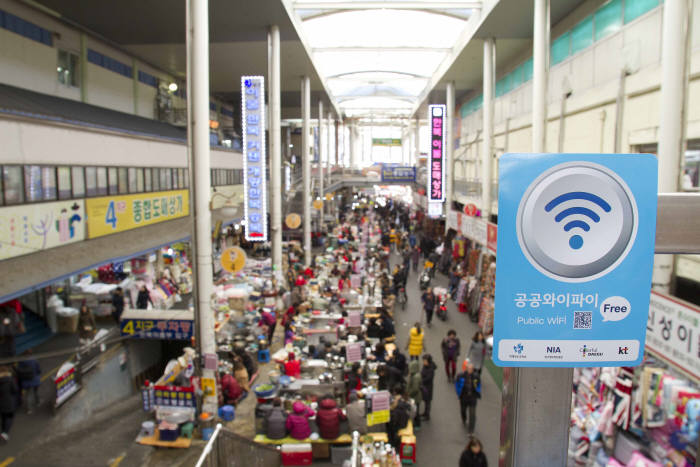In July 2017, Moon Jae-in government prioritizes public Wi-Fi for 20,0…
작성일2019.10.05
본문
http://www.etnews.com/20170727000436?mc=em_004_00003

The government builds public Wi-Fi on about 20,000 buses across the country. The Moon Jae-in government signaled the 'public Wi-Fi expansion strategy', which is being pursued as one of the top 100 national agenda tasks to reduce the national communication cost.
The Ministry of Science and ICT announced on the 27th that it plans to establish a public Wi-Fi for the city bus and apply for a budget deliberation from the Ministry of Strategy and Finance.
About 20,000 city buses are built for public Wi-Fi. Although the size of the budget is unknown, it is estimated that one access point (AP) per bus and control costs are between 1.5 million and 2 million won. It is expected to take up to about 40 billion won.
With regard to mobile data costs, the Ministry of Information and Communication is expected to apply the way mobile carriers supply data on high-speed railways. The company provides 40-50 terabytes (TB) of data for 30 million to 35 million won per month on high-speed railway. It is only 1.8 billion to 2.1 billion won over five years.
An official of the telecommunications company said, “High-speed railway provided very cheap data for mobile backhaul because of its symbolism.” “We are wondering whether we can maintain a low price even for 20,000 buses.”
Buses have a large quantity and floating population, making it difficult to predict data demand. Hundreds of TB are expected each month. Mobile carriers to participate in the business tend to bid competitively by proposing AP construction, control costs and data costs (provided amount) within a fixed budget.
Contrary to the original plan to install 50,000 APs on 50,000 national buses (city, outside, seats, and express trains), the limitation of 20,000 city buses is understood to mean the rapid implementation of public Wi-Fi. It was considered that if APs were temporarily installed on national buses, the budget would increase to hundreds of billions and the preliminary feasibility study would be inevitable.
Along with the National Planning Advisory Committee, the Democratic Party expected to save 6.34 million to 57.2 billion won in communication costs per year by constructing 50,000 APs nationwide. However, as APs will be built only on 20,000 city buses, communication cost savings will decrease.
Some have argued that various technologies should be reviewed to reduce operational costs (data costs) if inevitable by inclusion in national affairs. An alternative is TV White Space (TVWS), a digital TV frequency idle band (470-697 MHz).
Ho-sang Yoo, CEO of Innonet, said, “TVWS doesn't cost data like regular Wi-Fi, so you only need to pay for the wires to the cell (base station).” Installing a mobile AP can save you more money than using Long Term Evolution. ”
On the other hand, 150,000 APs will be reviewed later in 11,536 elementary, middle and high schools nationwide.
Reporter Ahn Ho-cheon






